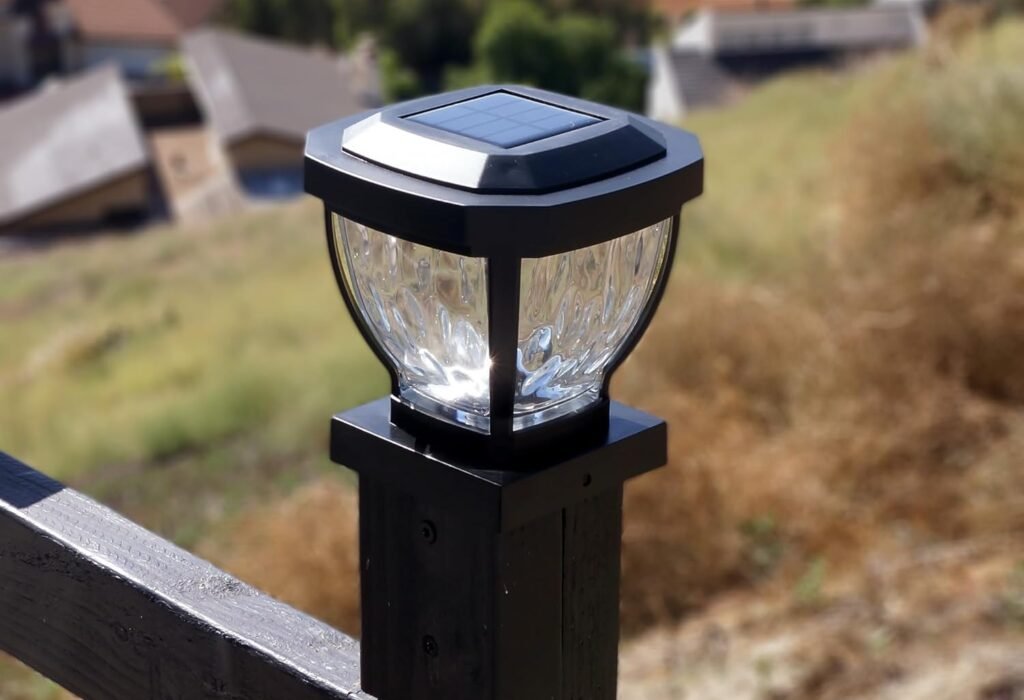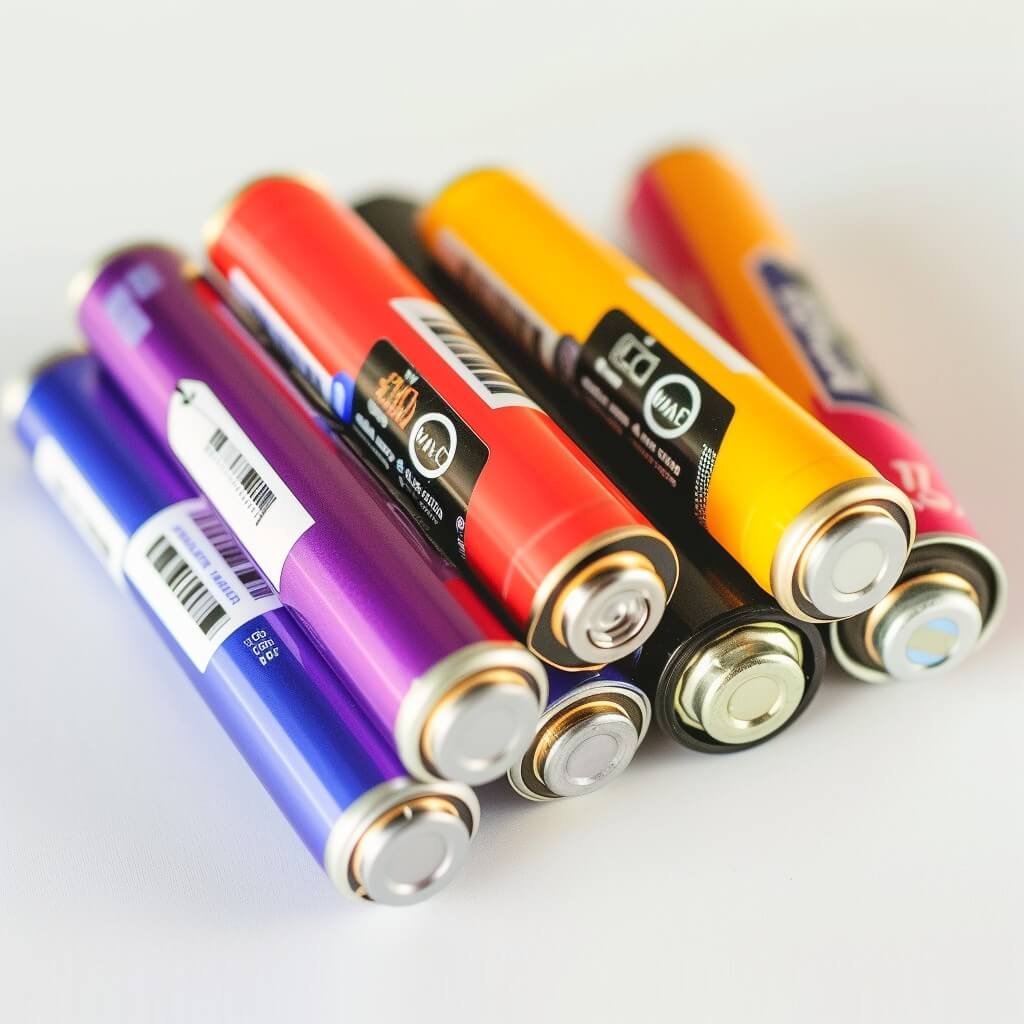Solar lights have become a popular choice to illuminate our outdoor environment because they are eco-friendly and cost-effective.
However, a common question arises: Do solar lights need batteries to work? The short answer is yes!
Batteries play a crucial role in the operation of these solar lights because they help store excess energy.
This article will cover why they are essential, how they work, and what types of batteries are commonly used in solar lights.

How Solar Lights Work
To understand the importance of batteries in solar lights, it’s helpful to know how these solar lighting systems function:
- Sunlight Absorption: Solar panels help capture sunlight during the day and convert it into electricity.
- Energy Storage: The electricity generated from the solar panel is stored in a rechargeable battery.
- Automatic Illumination: A light sensor detects darkness and triggers the battery to power the LED lights.
- Consistent Lighting: The stored energy provides illumination throughout the night.
Without a battery or batteries, solar lights wouldn’t be able to store energy which means you won’t be able to use the lights in the night.
Related articles
How Do Solar Landscape Lights Work?
How Decorative Solar Lights Work with Solar Panels
Are solar garden lights recyclable?A Complete Guide
How Weather Affects Solar Light Performance
How to Choose The Right Solar Panel for Your Lights
Why Do Solar Lights Need Batteries?
Solar lights need batteries because the heart of solar lights is batteries, which help store the energy from the solar panel during the day to ensure reliable illumination when darkness falls.
Here is a detailed breakdown:
1. Energy Storage
- Batteries store the energy produced by solar panels during the day.
- This stored energy ensures that the lights can work at night or during cloudy days when sunlight is insufficient.
2. Uninterrupted Operation
- Solar lights rely on batteries to provide a consistent power source once the sun sets.
- Without batteries, solar lights would only function during direct sunlight and turn off as soon as the sun is obscured.
3. Automation
- Batteries, combined with light sensors, allow solar lights to automatically turn on at dusk and off at dawn without manual intervention.

Types of Batteries Used in Solar Lights
Before purchasing any solar lights you have to know the type of batteries being used.
Different types of batteries are used in solar lights, each with unique characteristics:
1. Lithium-Ion (Li-Ion) Batteries
- Features: Lightweight, high energy density, long lifespan.
- Advantages: Efficient and can handle frequent charging and discharging cycles.
- Common Use: High-performance solar lights.
2. Nickel-Metal Hydride (NiMH) Batteries
- Features: Environmentally friendly and cost-effective.
- Advantages: More capacity than older NiCd batteries.
- Common Use: Mid-range solar lights.
3. Nickel-Cadmium (NiCd) Batteries
- Features: Durable and capable of handling extreme temperatures.
- Advantages: Inexpensive but less eco-friendly.
- Common Use: Older or budget solar light models.
4. Lithium Iron Phosphate (LiFePO4) Batteries
- Features: Long lifespan, enhanced safety, and thermal stability.
- Advantages: Excellent for outdoor solar lights exposed to varying weather conditions.
- Common Use: Premium solar lighting systems.
How to Choose the Right Batteries for Solar Lights
When selecting batteries for solar lights, consider the following factors:
1. Compatibility
- Check the manufacturer’s recommendations to ensure the battery type and voltage match the solar light’s requirements.
2. Capacity
- Choose a battery with sufficient capacity (measured in milliampere-hours, or mAh) to provide adequate nighttime lighting.
3. Lifespan
- Opt for batteries with longer lifespans to minimize replacement frequency.
4. Environmental Impact
- Select eco-friendly options like NiMH or LiFePO4 batteries when possible.
How Long Do Solar Light Batteries Last?
Solar light batteries last or lifespan of solar light batteries depends on their type and usage:
- NiMH Batteries: 1-3 years.
- Li-Ion Batteries: 2-5 years.
- LiFePO4 Batteries: 5-10 years.
Regular maintenance, such as cleaning the solar panel and replacing depleted batteries, can extend their lifespan.
FAQs About Solar Lights and Batteries
1. Can solar lights work without batteries?
No, solar lights require batteries to store energy for use during the night. Without batteries, they would only function in direct sunlight.
2. Are all solar lights equipped with rechargeable batteries?
Yes, most solar lights come with pre-installed rechargeable batteries. These batteries are specifically designed to work with solar panels and light sensors.
3. How do I know if my solar light’s battery needs replacing?
If your solar lights fail to stay illuminated for their usual duration or don’t light up at all, it’s likely time to replace the batteries.
4. Can I use regular batteries in solar lights?
No, regular (non-rechargeable) batteries are not suitable for solar lights. They cannot store solar energy and may cause damage to the system.
5. How can I extend the life of solar light batteries?
- Clean the solar panels regularly to ensure efficient charging.
- Avoid placing solar lights in shaded areas.
- Replace depleted batteries promptly to maintain performance.
Conclusion
Batteries are an essential component of solar lights, enabling them to store energy during the day and provide illumination at night.
Providing energy storage for automated operation, batteries ensure the functionality and convenience of solar lighting systems.
Understanding the role of batteries and choosing the right type can help you get the most out of your solar lights.
Investing in high-quality, rechargeable batteries, you’ll enjoy reliable, eco-friendly lighting for years to come!



